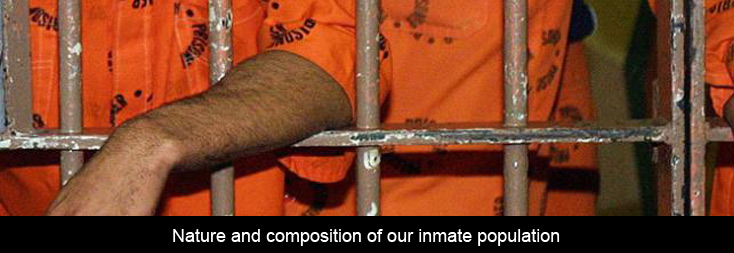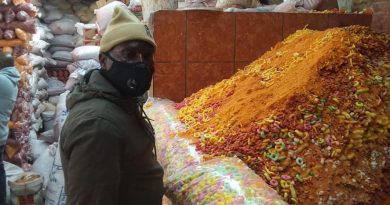Correctional services ask communities to play part in integrating offenders as law-abiding citizens
Correctional Services Minister Sibusiso Ndebele has re-iterated calls for communities to play their part in ensuring that offenders serving sentences outside correctional centres are reintegrated as law-abiding citizens.
In addition to the 152,550 inmates serving sentences inside a correctional centre, there are presently 63,240 offenders serving sentences outside correctional centres, who live in their respective communities. Of the 63,240 offenders, 48,323 are on parole, 14,917 are probationers (convicted offenders serving non-custodial sentences) and an additional 1,719 are awaiting-trial detainees. Every month about 23,000 inmates exit correctional centres, and 25,000 new inmates are admitted.
“As corrections is a societal responsibility, and not just the responsibility of the Department of Correctional Services (DCS), the community forms an integral part of the rehabilitation of offenders on parole to reintegrate them as law-abiding citizens. Parole is used internationally to place offenders under supervision within the community.
“Parole refers to a period whereby an offender, who has served the prescribed minimum detention period of his sentence in a correctional centre, is conditionally released to serve the remainder of his sentence in the community under the supervision of the DCS. Therefore, parole is not the end of a sentence but an offender serving the rest of his sentence under supervision within the community. The parole policy provides for credible members of communities to chair the Correctional Supervision and Parole Boards (CSPBs) which have been allocated decision-making authority. Through the Victim-Offender Dialogues, DCS aims to strengthen current rehabilitation, and re-integration, programmes. The trilogy of victim, offender and community is paramount,” said the Minister.
DCS is mandated by law to manage, and maintain, a system of parole applicable to sentenced offenders. Parole is not a right, and is subject to specific conditions which an offender must comply with. The parole system allows for independent decision-making by various role-players, including victims, communities, the South African Police and the Department of Justice. Offenders released on parole are closely monitored. Electronic monitoring ensures that released offenders comply with their parole conditions, and can track offenders anywhere and anytime thereby promoting the safety and security of citizens. Parole can be described as a process which is the culmination of various events and factors after an offender is convicted of a crime. The process is a sequence of three important steps: recommendation by the Case Management Committee (CMC); revocation or approval by the CSPB and supervision by the Community Corrections branch of DCS. The compiling of a profile report of an offender, the selection and making of a decision to place a suitable offender on parole and the effective supervision of a parolee in the community all form part of the parole process.
Parole forms part of the total rehabilitation programme in correcting offending behaviour. It is regarded as an aid to social re-integration of the offender, and a mechanism to manage the risk the offender may pose to the community. Parole may not be favourably considered if an offender has not participated in programmes aimed at preparing them for a crime-free life after placement on parole. If parole is approved, an offender is subject to conditions which he/she must comply with until the expiry of his/her entire sentence, and each parolee is assigned to a specific parole official. Parole officials monitor compliance with strict parole conditions, through regular visits to the parolee at his or her home and/or workplace. One standard condition is that offenders on parole may not commit any crime, and, if they do, they will return to a correctional centre. Measures in place to ensure that released offenders comply with their parole conditions include house detention, monitoring, performance of community service, restriction to magisterial district, refraining from the use of alcohol or illegal drugs, refraining from making contact with a particular person(s), and participating in treatment, development and support programmes. Where a person subject to parole has failed to comply with any condition imposed on him/her, DCS may apply the following sanctions: reprimand the parolee, issue a verbal warning, issue a written warning, and revoke parole supervision.
On 10 January 2013, Riku Nortje (37 years), Correctional Services 2011 top university student who was sentenced to life imprisonment in 1996, was released on parole after serving 16 years of his life sentence at the Leeuwkop Correctional Centre. Nortje started serving his sentence at the age of 21, and only had Grade 10. Upon his release, he had a Master’s degree in computer science from UNISA. He graduated with distinction in 2011.
Between 2001 and 2005, he studied towards a Bachelor’s degree in computer sciences and mathematics and graduated with distinction. In 2006, he moved on to study for a BSc Honours in computer sciences and graduated with a distinction in 2009.





